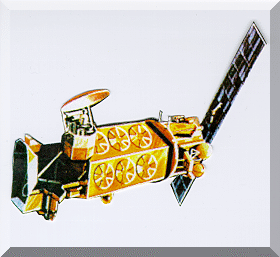| |
|
What Is The Polar Satellite Precipitation Data Centre (PSPDC)?

The Polar Satellite Precipitation Data Centre constitutes part of NASA's
contribution to the GPCP.
Physically located at Goddard Space Flight
Center the PSPDC acquires satellite microwave measurements from operational
satellites as well as correlative information (e.g., available ground truth
measurements and atmospheric temperature and water vapor soundings) to produce
estimates of rainfall rate over the oceans, using a project-approved algorithm.
This centre is also responsible for maintanence and upgrade of the algorithms and
the promotion of research and development of precipitation algorithms. Specific
functions of the centre are:
- Acquire the data tapes of SSM/I Level I brightness temperatures.
- Process the SSM/I tapes and compute monthly brightness temperature histograms
for each 2.5° latitude by 2.5° longitude box, for all channels and
for both vertical and horizontal polarizations.
- Produce global monthly microwave rainfall estimates for each 2.5°
latitude by 2.5° longitude box, using a project-approved algorithm.
Initially, rainfall estimates are produced over oceans only. The effort will be
extended to include global (land and ocean) estimates when improved algorithms
become available.
- Accumulate monthly rainfall estimates on magnetic tapes for 3-month periods.
- Prepare written documentation on any problems encountered in the acquisition
of data and the computation of satellite rainfall estimates, and on any
modifications to algorithms or changes in procedures.
- Prepare copies of magnetic tapes of monthly rainfall estimates and
documentation and ship to the GPCP Geosynchronuous Satellite Precipitation Data Centre
(GSPDC) and the Global Precipitation Climatology Centre (GPCC) within six weeks
after the close of the 3-month period under consideration.
- Store the histogram data and the rainfall estimates.
- Represent the GPCP Working Group on Data Management issues.
|
|
|



